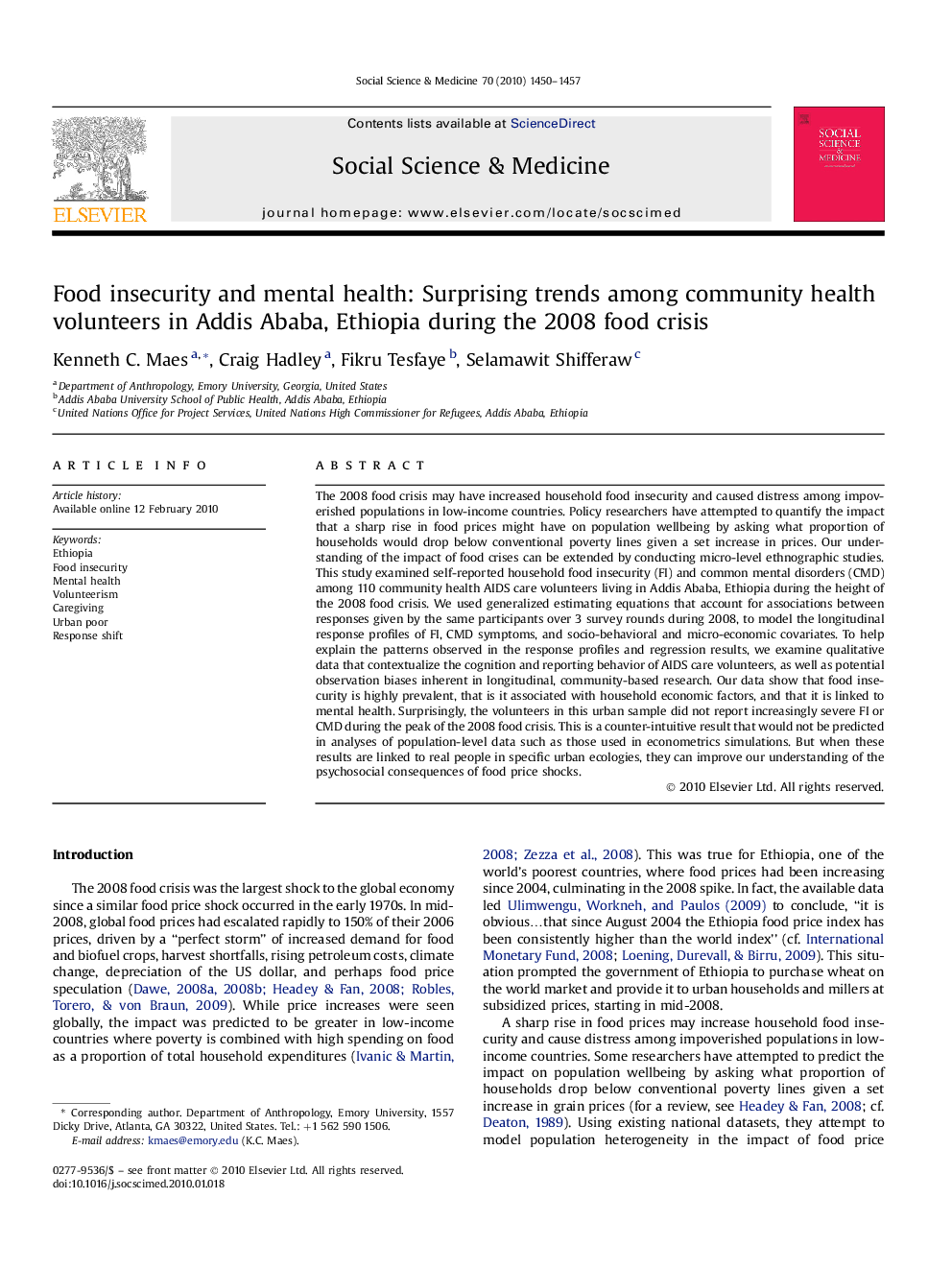| Article ID | Journal | Published Year | Pages | File Type |
|---|---|---|---|---|
| 953123 | Social Science & Medicine | 2010 | 8 Pages |
The 2008 food crisis may have increased household food insecurity and caused distress among impoverished populations in low-income countries. Policy researchers have attempted to quantify the impact that a sharp rise in food prices might have on population wellbeing by asking what proportion of households would drop below conventional poverty lines given a set increase in prices. Our understanding of the impact of food crises can be extended by conducting micro-level ethnographic studies. This study examined self-reported household food insecurity (FI) and common mental disorders (CMD) among 110 community health AIDS care volunteers living in Addis Ababa, Ethiopia during the height of the 2008 food crisis. We used generalized estimating equations that account for associations between responses given by the same participants over 3 survey rounds during 2008, to model the longitudinal response profiles of FI, CMD symptoms, and socio-behavioral and micro-economic covariates. To help explain the patterns observed in the response profiles and regression results, we examine qualitative data that contextualize the cognition and reporting behavior of AIDS care volunteers, as well as potential observation biases
